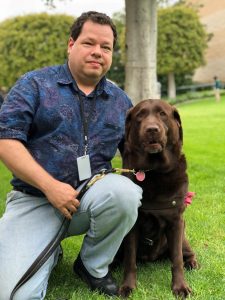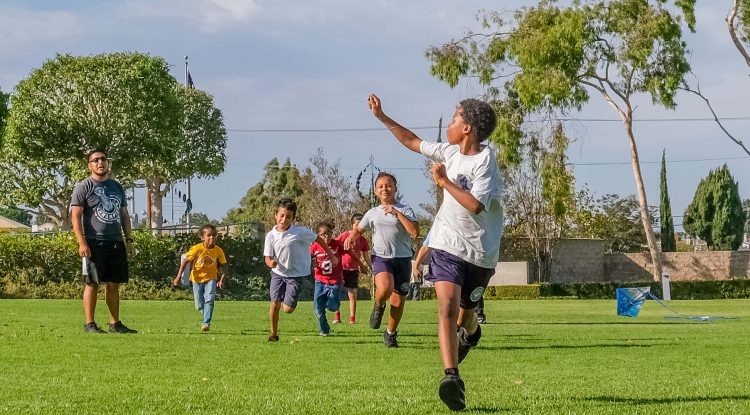
Meet Director of Transition Services Rob Schulenburg
When Rob Schulenburg was born in the early 1970s, doctors quickly noticed his erratic eye movements. They assumed that this was a sign of multiple disabilities: total blindness, hearing loss and intellectual disability. The doctors suggested Rob’s parents give him up to the state; a woman was in the next room with the paperwork. “My parents believed that everyone has strengths and weaknesses,” says Rob. “I was the youngest of five, and my parents thought, ‘We’ll put him with the rest.’”
It turned out that Rob was visually impaired. The whole family enrolled in Wayfinder’s Blind Babies Foundation program, which provides critical early intervention services. They also sent him to our Camp Bloomfield from age 7 until his early teens. There he discovered new passions like horseback riding, made lifelong connections with mentors and colleagues and gained new independence.
Rob’s family valued education and independence. “Around the dinner table, Dad asked us all where we were going to school and what we were going to study,” Rob remembers. “I wasn’t exempt simply because I was only 4 years old.” The gifted young man didn’t plan on a career in special education. “I went into a master’s program rather than law school after losing a coin toss to my wife,” Rob says. “We didn’t want to be in law school at the same time.”
That flip of the coin was momentous. It launched Rob into the special education profession and took him on a journey back to Wayfinder, where he had once been a client.
After earning his master’s degree, Rob worked at a school for the blind for 12 years, followed by three years in the Peace Corps. When Rob returned to California, a friend asked him to consult on the curriculum for the expansion of Wayfinder’s Transition Services to Northern California. Rob joined the staff in 2012 and became program director in 2015.
Transition Services prepares young people ages 16 to 24 with vision loss for their next step in life. They may be unsure what to do after high school or how to become employable. “They define what success means to them,” says Rob.
In the multifaceted program, teens and young adults learn about college, career options and workplace skills. They gain confidence and independence. This process can take several years—with a few bumps along the way. One young man who attended a Wayfinder Transition Services workshop is a junior in college now, but at one point he dropped out of high school to figure things out. Transition Services has been assisting him for six years.
“The most rewarding moments are when you see students put things together for themselves,” Rob says. “When they decide to go to college, move out or take a job.”
It’s the personal relationships that make Transition Services much more than a college and career program. “We develop trust,” says Rob. “We give students a place to turn.”•
August 29, 2018


